Table of Contents
Within the intricate logistics and supply chain management domain, the seamless movement of goods from warehouse to customer is a non-negotiable priority. In doing so, delivery management software emerges as a cutting-edge solution primed to revolutionize real-time data control. Integrating this cutting-edge software into operational frameworks presents an unparalleled opportunity to significantly reduce stock discrepancies and preempt the perils of costly overstock scenarios.
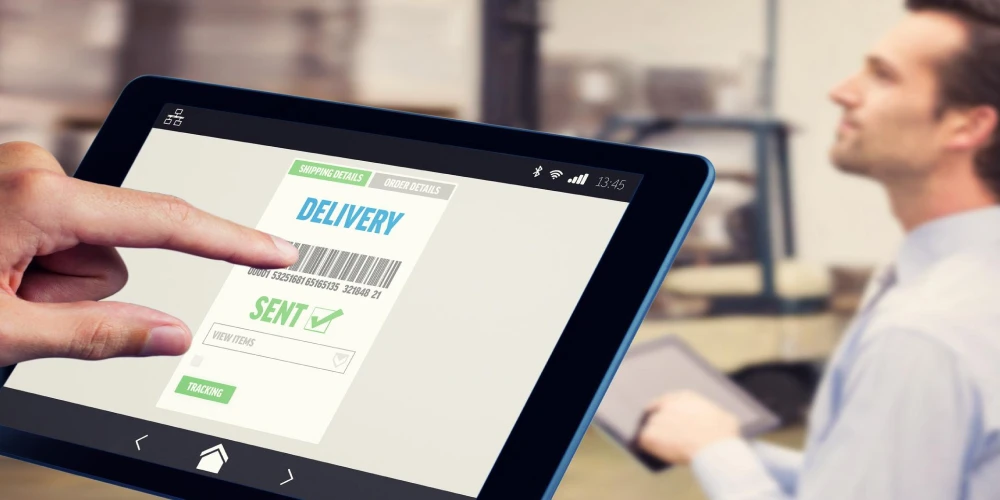
Logistics delivery management software is a dynamic tool that enhances visibility across the supply chain. With its advanced functionalities, each product finds its rightful place, and every delivery is optimized for speed and precision. Envision a meticulously woven network of operations fortified by the insights and efficiencies afforded by state-of-the-art technology.
Fleet Tracking and Route Optimization
Operational efficiency is at the core of successful delivery management, and it largely depends on two critical aspects: fleet tracking and route optimization.
Effective fleet tracking allows businesses to maintain a real-time overview of their vehicles, ensuring that each resource is optimally utilized. This real-time visibility is key to responding to unexpected changes and running operations smoothly.
Moreover, route optimization has a direct impact on delivery performance. Businesses can significantly reduce delivery times and operational costs by carefully analyzing delivery routes and optimizing them for the quickest and most cost-effective paths. This improves efficiency and enhances customer satisfaction due to faster delivery services.
Software Features for Enhanced Fleet Management
- Real-time route updates to adjust paths on the fly in case of traffic, weather changes, or unexpected road closures
- Driver performance analytics to identify areas for improvement and ensure drivers are following the most efficient routes
- Strategies that account for variables such as vehicle load capacity, driver hours, and delivery time windows, which are crucial for improving route selection
Finding the right logistics delivery management software with comprehensive features for fleet tracking and route optimization is essential. Businesses can expect to make more informed decisions, improve their delivery efficiency, and ultimately drive down the costs associated with transportation and delivery operations.
Enhance Your Delivery Dynamics with Real-Time Tracking
Unveiling the Benefits of Real-Time Tracking for Both Businesses and Customers
Real-time delivery tracking represents a transformative leap in how businesses manage their shipping operations and how customers experience the delivery process. By providing live updates from dispatch to delivery, the best delivery management software with real-time tracking ensures that both parties stay informed at every step.
- Increased Operational Efficiency: Businesses can monitor deliveries as they happen, making agile decisions to reroute in response to traffic or unexpected delays.
- Customer Satisfaction: Customers enjoy the peace of mind of watching their delivery’s progress in real-time, which directly impacts their satisfaction and loyalty.
- Reduced Customer Inquiries: With constant updates, the need for customers to call and check on their orders is significantly minimized, freeing up valuable service resources.
Transparent Tracking: Fostering Trust and Transparency
Trust is the cornerstone of any strong business relationship. Real-time tracking helps businesses establish trust by offering full transparency throughout delivery. Delivery management software not only reassures customers about the accuracy of delivery times but also showcases your commitment to service excellence and reliability.
Proactive Issue Resolution with Real-Time Data
Real-time data is a critical tool for businesses to identify and address delivery issues before they escalate proactively. This aspect of delivery management software allows logistics teams to monitor for anomalies or delays instantly, providing an opportunity to mitigate potential problems and communicate updates swiftly to the customer, ensuring a smooth and efficient delivery experience.
Enhance Your Operations with Automated Dispatch and Scheduling
Automated dispatch and scheduling tools are the backbone of advanced delivery management software. These tools are pivotal in propelling operational efficiency by transforming complex distribution logistics into a streamlined, error-resistant process.
How Automation in Dispatching Increases Operational Efficiency
The integration of automation in dispatch processes significantly improves the operational efficiency of a delivery management system. Automation minimizes manual entry errors, accelerates dispatch times, and ensures optimal resource utilization, all while enabling real-time adjustments in response to unexpected variables such as traffic or weather conditions.
The Importance of Dynamic Scheduling for Managing Unexpected Changes
One cannot overstate the importance of dynamic scheduling within delivery management software. Managing unexpected changes in the delivery process is crucial in the fast-paced logistics realm. This flexibility helps maintain high service levels and improves customer satisfaction by meeting the dynamic demands of today’s on-demand economy.
- Dynamic scheduling adapts to real-time traffic updates, driver availability, and customer preferences.
- It facilitates rescheduling and rerouting on the fly without disrupting the entire delivery schedule.
- Automatically adjusting to changes reduces downtime and increases the number of successful deliveries.
Adopting a robust delivery management system with automated dispatch and scheduling capabilities is essential. It turns the unpredictable nature of logistics into a manageable and efficient process, keeping businesses one step ahead in the competitive landscape.
Enhance Customer Engagement with Effective Communication and Alerts
Delivery management software plays a pivotal role in elevating customer engagement and satisfaction. In today’s fast-paced world, the efficiency of deliveries can significantly impact how customers perceive a brand. Timely and proactive communication is key, not just for building trust but also for reducing customer anxiety regarding their order status.
Automated Alerts: Keeping Customers In the Loop
The sophisticated delivery management software comes with automated alerts that serve as a communication lifeline between your business and your customers. These alerts inform customers about every stage of the delivery process, from dispatch to the anticipated arrival time. By offering transparency through automated SMS, email notifications, or in-app messages, customers feel more in control and at ease with their purchase, fostering a positive customer experience.
Streamlined Driver-Customer Communication
Modern delivery management systems streamline communication channels between drivers and customers, facilitating smooth delivery operations. Integrated messaging features allow drivers to update customers if any changes occur on the road, such as delays due to traffic or weather conditions. This direct line of communication prevents misunderstandings and ensures that the customer is always aware of their delivery’s progress, further enhancing their satisfaction with your service.
- Real-time notifications on delivery status
- Automated pre-delivery reminders to ensure availability
- Post-delivery confirmations to gather immediate feedback
Enhance Accountability with Proof of Delivery Features
Proof of delivery is a pivotal aspect of modern delivery management software. By digitizing the confirmation process, companies can provide indisputable assurance of delivery, which is crucial for maintaining transparency and trust with clients. The advanced features integrated into delivery management systems significantly streamline the verification process.
Driver Tools for Seamless Delivery Confirmations
Dedicated tools help drivers capture and communicate delivery confirmations effortlessly. These typically include:
- Digital signature capture
- Photographic evidence of the delivered item
- Geo-tagging to confirm the location
- Time-stamping to record the exact moment of delivery
This suite of proof of delivery features ensures that drivers have the means at their fingertips to validate every delivery accurately and efficiently.
Electronic Proof of Delivery: Assurance and Dispute Resolution
- Immediate customer assurance with real-time confirmations
- Reduction in delivery disputes due to unequivocal evidence
- Faster resolution times, enhancing customer service efficiency
Analytics and Reporting Tools: Refine Strategies and Drive Efficiency
Behind every successful delivery management strategy lies a robust system of analytics and reporting tools. Tailored data insights serve as the lifeblood of decision-making and strategic refinement. Delivery management software with comprehensive analytics facilitates a deep dive into performance metrics, allowing businesses to hone their delivery services for superior customer satisfaction and operational efficiency.
Utilizing Analytics for Enhanced Customer Insights and Delivery Strategies
Analytics play a critical role in understanding customer behavior and delivery performance. Companies can closely monitor metrics to uncover patterns and trends that inform smarter, more effective delivery strategies. This information empowers businesses to adapt to market demands, personalize customer experiences, and boost loyalty and retention.
Custom Reporting for Diverse Business Needs and Goals
Every business is unique, with its own set of objectives and challenges. Customizable reporting features in delivery management software ensure businesses can focus on the data that matters most to them. Whether it’s detailed performance analysis or high-level overviews, customized reports help stakeholders stay aligned with the company’s goals and drive continuous improvement.
Making Data-Driven Decisions to Optimize Logistics Operations
- Identify bottlenecks: Pinpoint areas in the logistics process slowing down operations.
- Assess fleet utilization: Gain insights into how effectively your fleet is being used and identify opportunities for better vehicle management.
- Evaluate delivery timeframes: Analyze delivery times to ensure they meet customer expectations and industry standards.
By leveraging the power of analytics and reporting tools, decision-makers can transform raw data into actionable insights. This leads to superior decision-making, streamlined operations, and a leaner, more dynamic delivery management system.
Compliance and Security Measures
Data security and compliance with logistics regulations are critical in today’s digital age. With the right on-demand delivery management software, your business can adhere to industry standards and safeguard against potential breaches and compliance violations.
Adhering to Industry Standards and Regulations
Delivery management software streamlines operations while keeping compliance a top priority. It helps businesses consistently meet regulatory requirements, thereby mitigating risks associated with non-compliance. This is achieved through features designed to inform users about the latest industry standards and facilitate their implementation within their workflows.
Incorporating Security Protocols
Protecting customer data and company information is paramount. Parcel delivery management software includes comprehensive security protocols such as data encryption, secure data storage, and role-based access control. These measures ensure that sensitive information remains confidential and secure from unauthorized access, thereby preserving the integrity of your operations and maintaining your customers’ trust.
- Data encryption: Encrypting data ensures that information is kept secure during transmission and storage, reducing the risk of data interception and misuse.
- Secure data storage: Secure servers or cloud-based solutions protect information from physical harm and cyber threats.
- Role-based access: Implementing role-based access control means only authorized personnel can access certain data, helping to prevent internal breaches.
Scalability for Growing Businesses
Delivery management software isn’t just a solution for today’s operations; it’s an investment in your business’s future. As your business expands, you need a system that grows with you, adapting to increased demand and entering new markets seamlessly. Here’s how the right delivery management software ensures your growth is supported:
Seamless Expansion Support
With scalable delivery management software, you can easily scale your operations up or down without replacing your entire system. Modern software’s flexible nature allows for quick adjustments, accommodating the ebbs and flows of your delivery volume.
Features Facilitating Growth
- Modular Add-Ons: Expand functionality with add-ons as your needs develop without overhauling your entire system.
- Multi-Location Management: Management of multiple warehouses and distribution centers becomes streamlined, enabling you to penetrate new geographical markets.
- User Capacity: Adding more users and delivery agents to the system as your workforce grows.
- Advanced Analytics: Harness the power of data to inform your expansion strategy and optimize operations for new market demands.
When selecting delivery software, say grocery delivery management software or food delivery management software, it’s paramount to prioritize scalability. This ensures that the software can seamlessly adapt to increasing demands and complexities as your business expands. Look for solutions that offer robust scalability features, such as handling a growing number of orders, integrating with additional delivery partners, and accommodating expanding geographic coverage. Scalability should be viewed as an enabling factor in your business growth rather than a potential bottleneck. By investing in software that can scale with your business, you’ll be better equipped to navigate growth challenges and sustain long-term success.
Seamless 3PL Integration with Advanced Delivery Management Software
For businesses utilizing third-party logistics (3PL) providers, maintaining seamless integration with their last-mile delivery management software is critical. It facilitates a synchronized approach to supply chain management, ensuring that every element of the delivery process is harmonized with your logistical partnerships.
- Seamless Logistical Teamwork: Companies can directly integrate systems with 3PL providers by implementing robust delivery management software. This integration streamlines operations, allowing real-time communication and a unified platform to oversee all logistical processes.
- Synchronized Supply Chain Management: Sharing vital tracking data with 3PL partners enhances the efficiency and reliability of the supply chain. This centralized sharing ensures both parties are informed and can make data-driven decisions, leading to optimized delivery and reduced chances of delays or errors.
Incorporating 3PL integration features into your delivery management software strategy can lead to improved collaboration, reduced operational costs, and a more agile response to market demands and challenges. This is not just about software; it’s about creating an ecosystem that enables your business to operate at the pinnacle of efficiency and reliability.
Maximize Profits with Delivery Management Software: Understand Cost Reduction and ROI
Investing in modern delivery management software transcends typical business expenditures; it’s a strategic move towards substantial cost reduction and enhanced return on investment (ROI). By leveraging advanced features tailored for optimization, companies witness a significant drop in overhead and a rapid financial turnaround. Let’s unpack the art of enhancing your bottom line with smart delivery solutions.
Evaluating ROI from Delivery Management System Implementation
Understanding the financial impact of delivery management software begins with measuring the return on investment. A systematic analysis of cost savings versus software costs reveals clear financial benefits. Businesses can quantify the transformative effects on operational efficiency and profitability by tracking delivery time reductions, fuel savings, and improved labor productivity.
Strategies for Cost Savings Through Delivery Automation
Automation is the linchpin of cost efficiency in delivery operations. By implementing strategies that automate dispatch schedules, optimize delivery routes, and streamline the information flow, companies can:
- Minimize manual errors: Automated processes reduce the chances of human error, eliminating unnecessary costs related to discrepancies and data re-entry.
- Optimize fleet utilization: Sensible route planning maximizes the number of deliveries while minimizing distance and fuel consumption.
- Reduce administrative workload: Scheduling and reporting automation frees staff to focus on more critical tasks, leading to better resource allocation.
By emphasizing efficiency via delivery management software, businesses cut down on excessive spending and position themselves for a dynamic ROI that continues to grow with their operational enhancements. As process optimization becomes ingrained in the system, the long-term financial benefits become increasingly evident.
Pro tip:
Embrace delivery management software to streamline operations and ensure cost-effective scalability as your business grows. By investing in this technology, you’re enhancing performance and securing undeniable financial returns on your investment.
Optimize Deliveries with Mobile Accessibility and Driver Apps
With the increasing need for mobility in logistics, delivery management software with mobile accessibility is no longer just an option—it’s a critical component for success. Seamless mobile integrations ensure that your delivery operations can keep pace with the demands of a rapidly evolving market.
The Role of Mobile Solutions in Real-Time Tracking and Communication
Efficiency in delivery management hinges on the ability to track and communicate in real time. The ubiquity of smartphones has made it possible for drivers to stay connected with dispatch teams, allowing for immediate updates and adjustments. This leads to enhanced transparency, faster response times, and improved customer satisfaction.
Driver Apps: Streamlining the Delivery Process
Driver apps are a game-changer in the delivery industry, giving drivers the power to manage their routes effectively. These apps provide:
- Route guidance, optimizing the path for quicker deliveries.
- Real-time traffic updates to avoid delays and increase on-time delivery rates.
- In-app messaging for instant communication with dispatch.
- Electronic proof of delivery to accelerate the post-delivery process.
By equipping drivers with a comprehensive driver app, businesses can greatly reduce the likelihood of delays and errors, thereby improving the overall efficiency of their delivery management system.
Artificial Intelligence and Machine Learning: Revolutionizing Delivery Management
As the logistics industry navigates a rapidly changing landscape, delivery management software equipped with Artificial Intelligence (AI) and Machine Learning is proving to be a game-changer. Integrating these advanced technologies transforms how businesses predict, plan, and execute delivery operations.
The Future of Delivery Management with AI-Driven Predictions and Decision-Making
With AI at its core, delivery management becomes reactive and proactive. Sophisticated algorithms can analyze historical data and real-time inputs to predict demand, identify patterns, and make intelligent decisions optimizing the delivery lifecycle. AI-driven systems offer unparalleled efficiency, ensuring the right products are delivered to the right place at the right time with minimal waste.
Use Cases for Machine Learning in Optimizing Logistics Workflows and Reducing Human Error
Machine Learning is a potent tool for streamlining logistics workflows across diverse industries, particularly within food businesses. With the restaurant delivery management software, food business proprietors are reaping rewards such as:
- Automatically adjust routes in response to traffic conditions, weather, and unforeseen delays.
- Enhance dispatch processes by predicting the best assignment of orders to couriers.
- Reduce human errors in logistics planning and execution by providing data-driven recommendations.
Thus, delivery management software augmented with AI and Machine Learning capabilities not only supports the current needs but also paves the way for the future, where data is the key asset in mastering the complexity and dynamism of delivery ecosystems.
Pro Tip:
Harness AI and Machine Learning in delivery management software for predictive insights, efficient operations, and future-proof logistics. Embrace these technologies to stay ahead in the ever-evolving landscape of delivery ecosystems.
Environmental Sustainability in Logistics
Addressing environmental concerns through smart delivery management solutions is no longer a choice but a necessity for modern logistics operations. As environmental issues become increasingly pressing, leveraging technology to minimize ecological impact is practical and responsible.
Utilizing delivery management software can help companies incorporate eco-friendly practices into their delivery operations. This intuitive software can optimize delivery routes to reduce fuel consumption and carbon emissions by avoiding unnecessary mileage. Moreover, synchronized management integration leads to more accurate order fulfillment, reducing the number of delivery trips needed due to errors or returns.
- Optimization of routes to ensure the least possible environmental footprint.
- Reduced paper usage by transitioning to electronic proof of delivery and digital documentation.
- Enhanced fleet management to maintain vehicles in peak condition for fuel efficiency and reduced emissions.
Embracing these intelligent software solutions contributes positively to the environment and can lead to significant business cost savings. It’s a win-win situation where companies can uphold social responsibility while improving their bottom line.
Customization and Workflow Automation: The Pinnacle of Delivery Management Software
Understanding that no two businesses operate identically, delivery management software takes flexibility and efficiency to the next level through advanced customization and workflow automation options. By adapting to the unique demands and intricacies of your logistics operations, this software is an indispensable tool for maintaining a competitive edge.
Tailored Solutions for Every Business
Central to the effectiveness of delivery management software is its ability to mold to your business’s specific needs and processes. Customization allows for creating a platform that aligns perfectly with your operational workflow, whether customizing dashboards, delivery prompts, or generating unique reports tailored to your business’s KPIs. This bespoke approach ensures that every software function adds tangible value to your logistics management.
Streamlining Operations with Smart Automation
In the age of fast-paced commerce, automating repetitive tasks is not just a convenience—it’s a necessity. Employing workflow automation within your delivery management software maximizes efficiency, allowing your team to focus on strategic tasks and enhancing customer service. From automatically scheduling dispatches to sending out delivery notifications, automation reduces human error and accelerates every delivery process step.
- Efficiency Boost: Automate time-consuming tasks like order entry, route planning, and customer notifications to expedite operations and reduce the likelihood of errors.
- Employee Empowerment: With routine tasks automated, employees can concentrate on improving service quality, strategizing for growth, and tackling more complex problems that require human insight.
- Scalability: As your business grows, automation scales with you, allowing for seamless expansion of operations without the need to increase your workforce exponentially.
- Consistency: Automated processes ensure a consistent and reliable customer experience, increasing satisfaction and loyalty.
To remain at the forefront of logistics and delivery management, embracing the capabilities of software equipped with robust customization and workflow automation is essential. The future of delivery management is about leveraging technology to create smarter, more responsive, and more adaptable logistics strategies. Investing in such innovation is investing in your business’s future success.
Key Takeaways:
Efficiency through Integration: Delivery management software integrates seamlessly into operational frameworks, reducing stock discrepancies.
Real-time Fleet Tracking and Route Optimization: Advanced features like route updates and driver performance analytics improve fleet efficiency and reduce delivery times.
Enhanced Customer Experience with Real-Time Tracking: Real-time tracking fosters transparency, trust, and customer satisfaction by providing live updates throughout delivery.
Automation and Dynamic Scheduling Drive Efficiency: Automated dispatching and dynamic scheduling streamline operations, reduce errors, and adapt to unexpected changes, enhancing overall efficiency.
Cost Reduction and ROI Maximization: Investing in delivery management software leads to significant cost savings through automation, optimization, and improved operational efficiency, resulting in a substantial return on investment.
Conclusion
As we’ve navigated the multifaceted realm of delivery management software, it has become clear how integral these systems are in propelling the logistics and supply chain industries forward. The strategic advantages of integrating such software extend from enhancing route optimization to providing real-time delivery tracking to elevating customer communication and ensuring robust analytics and reporting.
By adopting a comprehensive delivery management solution, your enterprise will gain efficiency in automated dispatching and scheduling and revel in the assurance that comes with advanced compliance and security measures. Pair these with the ability to scale operations seamlessly, integrate with third-party logistics, and realize considerable cost savings. The return on investment will become undeniable.
Embrace the future with mobile accessibility, and let driver apps streamline your processes. Utilize the power of artificial intelligence and machine learning for predictive analytics and smarter decision-making. Prioritize environmental sustainability in your logistics to meet compliance and contribute to a greener planet. Customize and automate your workflows to reflect the unique needs of your business, carving a path for unmatched growth and success.
It’s suitable for logistics and supply chain firms to leverage these tools through NetworkON and gain a competitive advantage. Embrace robust delivery management software now, and observe your operations evolve into a more cohesive, effective, and prosperous ecosystem soon.
Frequently Asked Question
What are the key benefits of using delivery management software?
Delivery management software offers several benefits, including enhanced visibility across the supply chain, improved fleet tracking and route optimization, real-time delivery tracking for customers, automation of dispatch and scheduling, streamlined communication, proof of delivery features, analytics for data-driven decisions, compliance with industry standards, scalability for business growth, integration with third-party logistics providers, cost reduction through efficiency, and ROI maximization.
How does delivery management software improve customer satisfaction?
Delivery management software improves customer satisfaction by real-time tracking of deliveries, enhancing transparency and trust. Customers receive live updates from dispatch to delivery, reducing the need for inquiries and ensuring peace of mind. Automated alerts keep customers informed at every stage of the delivery process. In contrast, streamlined communication channels between drivers and customers prevent misunderstandings. Additionally, proof of delivery features offer assurance and facilitate faster issue resolution, enhancing the overall delivery experience.
What role does automation play in delivery management software?
Automation is essential in delivery management software for streamlining operations and increasing efficiency. It minimizes manual errors, accelerates dispatch times, optimizes route planning, and facilitates real-time adjustments to unexpected variables such as traffic or weather. Automation also reduces administrative workload, allowing staff to focus on more critical tasks and ensuring consistency in service quality. As a result, businesses can achieve cost savings, improve resource utilization, and enhance customer satisfaction through automation.
How does delivery management software contribute to environmental sustainability?
Delivery management software contributes to environmental sustainability by optimizing delivery routes to minimize fuel consumption and carbon emissions. It reduces paper usage through electronic proof of delivery and digital documentation. Additionally, enhanced fleet management capabilities help maintain vehicles in peak condition for improved fuel efficiency and reduced emissions. By incorporating eco-friendly practices into delivery operations, businesses can positively impact the environment while achieving cost savings and operational efficiency.
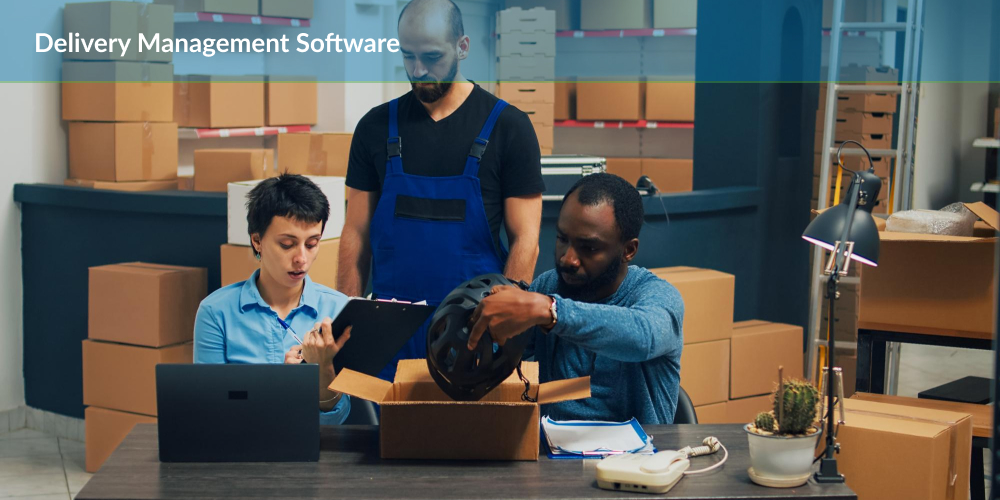

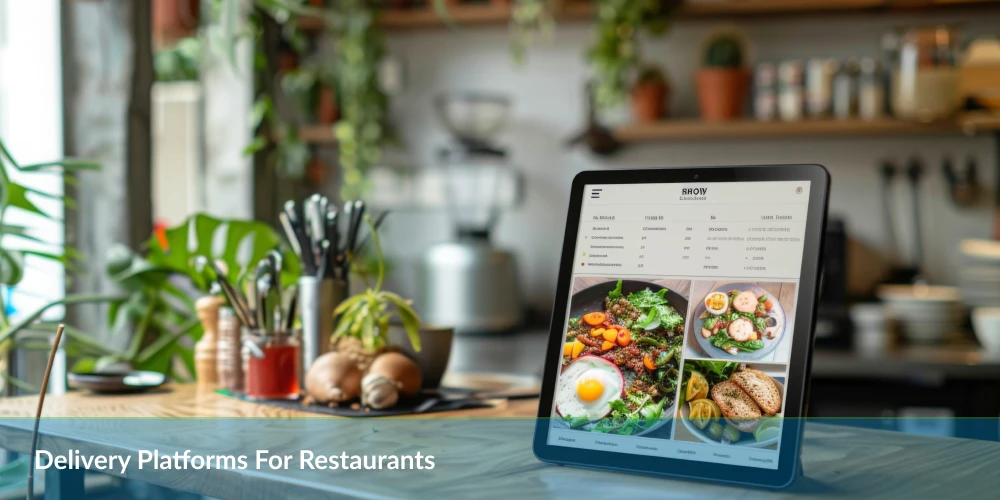
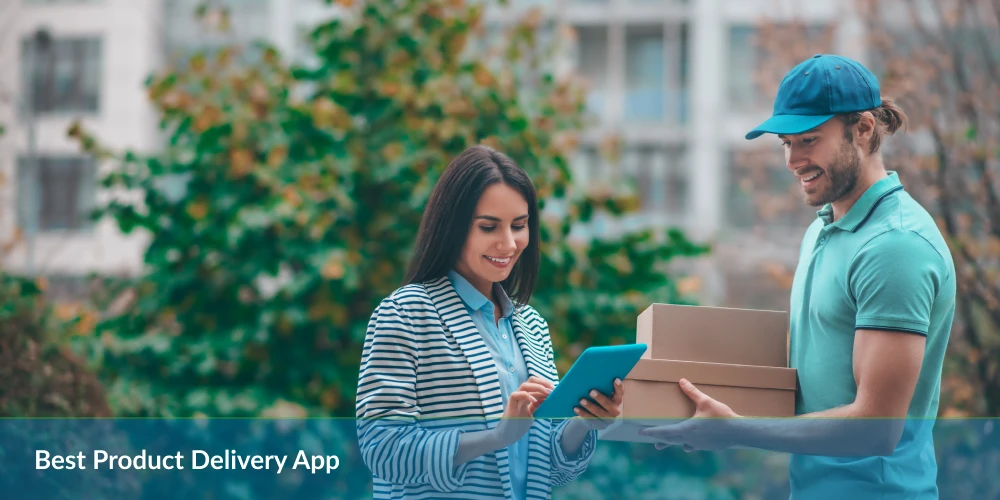
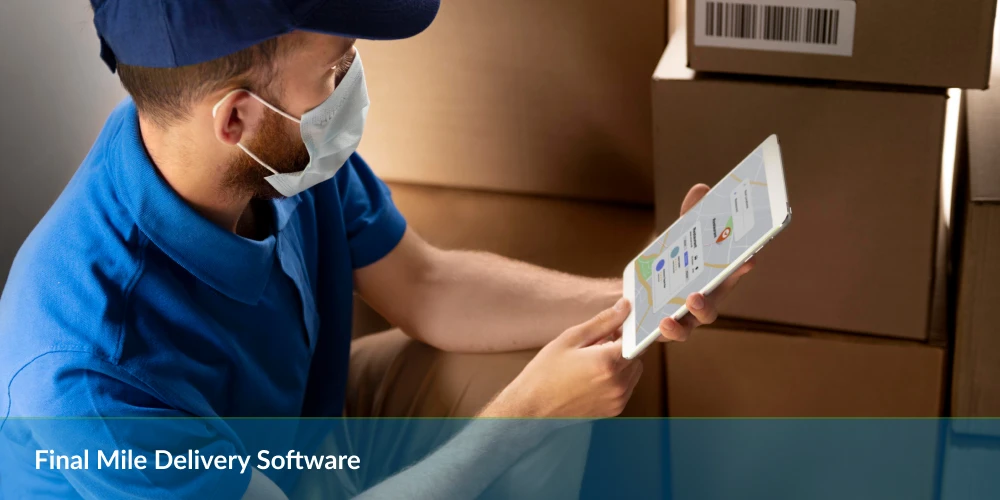
0 Conversations